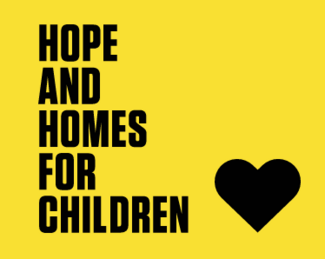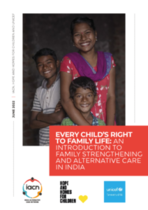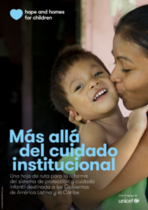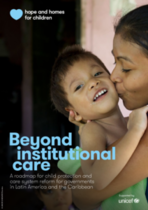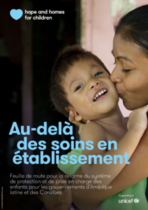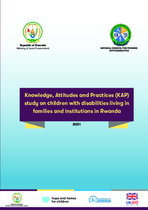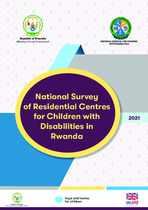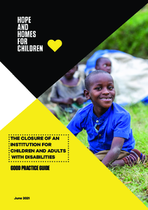Home and Homes for Children is a UK-based charity that works to close orphanages and get the children inside them back to family.
Around the world, more than 5.4 million children are confined in orphanages, even though 80% of them have family they could be living with if they had the right support.
Hope and Homes for Children works in more than 10 countries across Europe, Africa and Asia to give children and families the support they need and change the systems that are putting children in institutions.
Their teams are helping families to stay together or be reunited, and creating new families through fostering and adoption, so that every child can grow up in a safe, loving environment where they can thrive.
They are also working with local authorities, governments and international bodies like the UN and EU to improve their policies and end the institutionalisation of children forever.
To contact Hope and Homes for Children, please fill out the contact form available here.
Where they operate
Headquarters Location
East Clyffe, Salisbury
Wiltshire
SP3 4LZ
United Kingdom
Organization Type
Main Areas of Work
What They Do
Keeping Families Together – Where war, poverty, discrimination or broken systems put pressure on parents to give up their children, Hope and Homes for Children fight to keep families together. Working with care and compassion, listening and understanding, they let families know there’s someone who cares about their situation, and provide them with the hope and support they need to keep their child within their family home.
Reuniting Families – Millions of parents are longing for the children they have been separated from. And children who could be back at home are lost in the bureaucracy of an orphanage. Through local teams including family tracing experts and specialist social workers, Hope and Homes for Children and their partners reconnect children with their loved ones. And once children are reunited, they stay by their side to help them adapt to their new life together.
Creating New Families – Hope and Homes for Children supports children whose birth families can’t look after them or keep them safe, or those who have no family at all. They work with individuals and authorities to find, train and support foster or adoptive parents: adults who they know from experience will love, protect and give security to a child. With their social workers, psychologists and educationalists by their side, new parents can give children the love they need to grow up and thrive in life.
Closing orphanages - Closing an orphanage for good is an extremely complex process that can take many years to complete. Hope and Homes for Children teams work with a range of local and national authorities and organisations - including local councils, community leaders, medical professionals and child protection authorities - in order to achieve that life-changing moment when an orphanage is closed for good and the children once confined within it are instead Back to Family.
Advocating for change - Many governments and regional authorities still use the institutionalisation of children as a childcare solution. By making them aware of the immense harm that placing children in institutions does, and showing the positive impacts that family-based care brings, Hope and Home for Children’s advocacy team is working to change attitudes and reform child care practices on both a national and international level.
HHC Advisory Services - drawing on their global operational delivery and partnering experience, Hope and Homes for Children provides a compelling package of technical support services to governments, UN agencies, local and international NGOs in other countries around the world. They work to bring about the transition of children’s care and protection systems to family-care. They support local initiatives, under local leadership and capability. Their focus is on locally owned, sustainable solutions and impact at scale. They are passionate about protecting the rights of all children, to see them brought up in safe, loving, nurturing families.
Organization Resources
This document answers the most frequently asked questions surrounding family strengthening and alternative care in India while also addressing misconceptions around it. It aims to help practitioners, child protection workers and researchers to build their understanding of family strengthening and alternative care in India. This document has been developed in accordance with the Mission Vatsalya Guidelines.
Más Allá del Cuidado Institucional proporciona un marco para que los gobiernos desarrollen su propia hoja de ruta para la reforma de sus sistemas de protección y cuidado infantil y la desinstitucionalización. Esperamos que esto inspire el diálogo, guíe las conversaciones entre grupos interministeriales y en la sociedad, oriente a grupos
multidisciplinarios de todos los niveles en la creación de su propia evaluación y ayude en la planificación de su propia hoja de ruta para el cambio.
This report provides a framework for governments to develop their own roadmap for child protection and care system reform and deinstitutionalisation. The authors hope that it will inspire a conversation, guide inter-ministerial and cross society dialogue, support multidisciplinary groups at all levels to frame their own assessment, and plan their own roadmap for change.
Au-delà des soins institutionnels fournit un cadre aux gouvernements pour développer leur propre feuille de route pour la réforme et la désinstitutionnalisation du système de protection et de garde des enfants. Nous espérons qu'il inspirera une conversation, guidera le dialogue interministériel et interprofessionnel, soutiendra les groupes multidisciplinaires à tous les niveaux pour encadrer leur propre évaluation et planifier leur propre feuille de route pour le changement.
These presentations from Hope and Homes for Children, Miracle Foundation and Railway Children were delivered during the August 20, 2021, workshop of the Care Measurement Task Force of the Transforming Children's Care Global Collaborative Platform. The focus of the workshop was child and family outcome measurement.
This video tells the story of Kaloyan and Maria, twins who spent the first five months of their lives in an orphanage because social prejudice and poor health meant their parents could not care for them alone.
This study is part of the response to the global call for the provision of quality alternative family-based care and prevention of family separation for children with disabilities. The study is premised on the view that the knowledge, attitudes, and practices regarding the attributes assigned to, and the conceptualization of, children with disabilities in their families and communities, vis-à-vis institutional care for children with disabilities, are also crucial determinants of barriers/ enablers of full and meaningful integration of children with disabilities into community life in Rwanda.
This video tells the story of Georgi, a boy born with Down's Syndrome in Bulgaria whose parents were told they wouldn't be able to care for him and were encouraged to place him in an orphanage. They placed him in an orphanage and were later supported by Hope and Homes for Children to have him returned to their care.
This report presents the findings from the National Survey of Residential Centres for Children with Disabilities in Rwanda. The survey aimed at gathering comprehensive and disaggregated data related to residents’ characteristics, staff profile, and the minimum standards for the centres.
This document outlines 5 key steps that serve as an effective blueprint for a successful reintegration process of children and disabilities. These include ‘engagement’, ‘Assessment’, ‘Design & Development’, ‘Transition’, and ‘Monitoring & Evaluation’.

